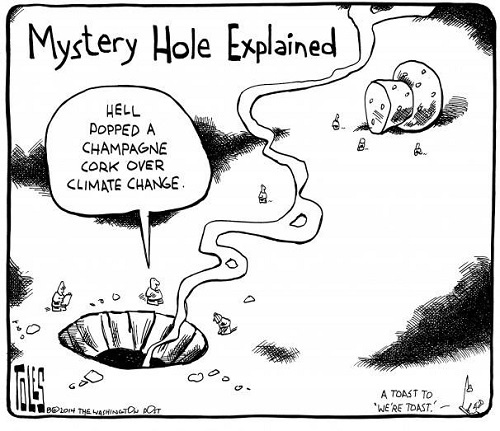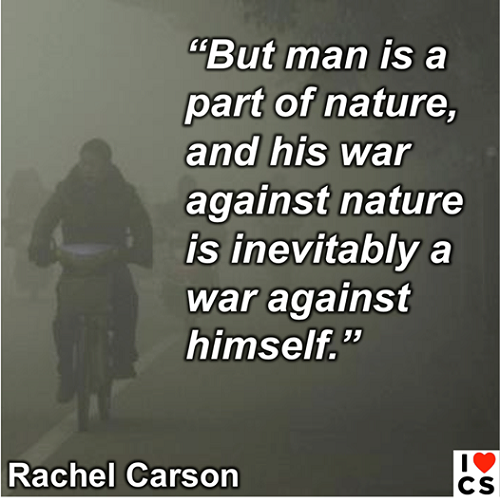
Global warming is moistening the atmosphere by John Abraham garnered the highest number of comments of the articles posted on SkS during the past week. Dana's New study finds fringe global warming contrarians get disproportionate media attention drew the second highest number of comments. Both articles are shortened versions of the what was published by each author on their shared blog post, Climate Consensus-the 97% hosted by The Guardian.

h/t to I heart Climate Scientists
Sir Andrew Haines talked with Global Ideas ahead of the annual World Health Summit in Berlin, where he is one of the speakers, about the impact of climate change on the health of the planet's population in both, rich and poor countries. Haines says new approaches are needed to convince the public to engage in the fight against climate change. “If you say the future is dangerous and it's difficult, it does not motivate people,” he says. “If they believe that there’s not much they can do, they get depressive and passive. But there are opportunities. And I think we have to emphasize that.”
Climate change and health - joining the dots by Klaus Esterluss, Deutsche Welle (DW), Aug 12, 2014
The SkS article, The Escalator, is linked to by Aaron Huertas in his Union of Concerned Scietntist blog post, Charles Mann and The Atlantic Miss The Mark in a Confused Climate Change Piece.
In his Climate Progress blog post, False Balance Lives: Media Biased Toward Fringe Climate Scientists Who Reject Global Consensus, Joe Romm links to the SkS article, The epidemic of climate science false balance in the media.
Quantifying the consensus on anthropogenic global warming in the scientific literature, Cook et al, 2013, Environmental Research Letters, is cited and linked to in:
The Stockholm Environmental Instittue (SEI) is an independent international research institute. We have been engaged in environment and development issues at local, national, regional and global policy levels for more than 20 years.
SEI was formally established in 1989 by the Swedish Government and celebrated its 20th anniversary in October 2009. The Institute has established a reputation for rigorous and objective scientific analysis in the field of environment and development.
Our goal is to bring about change for sustainable development by bridging science and policy. We do this by providing integrated analysis that supports decision makers.

Posted by John Hartz on Sunday, 17 August, 2014
 |
The Skeptical Science website by Skeptical Science is licensed under a Creative Commons Attribution 3.0 Unported License. |